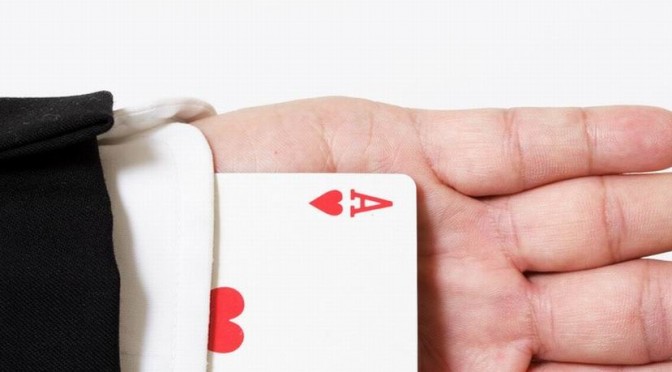 Shhhh… academic dishonesty going on.
Shhhh… academic dishonesty going on.
Well, yeah, students cheat. Schools look upon it as a horrible violation of civic rules, a sure sign of a life of failure ahead, and they threaten dire consequences for it. Frankly, it’s more like a speeding violation than the theft that it is: cheaters rarely get caught, and usually just for the big things (call it “reckless cheating”).
As with speeding, treating cheating as an offense against mankind won’t stop it. Like all things in schools, the snap of the finger just doesn’t magically transform children into little angels and prodigies. So they cheat.
Seems pretty clear why kids cheat, and, conversely, less clear as to what to do about it. But I’d argue that the “why” they cheat is not as obvious as you’d think — and that we can do something about it.
Cheating as an emotion
We must first recognize that cheating is an emotional response to anxiety that comes of fear of failure. We don’t cheat when we are confident and knowing. We cheat when we need an end-around, when we showed up unprepared, and when we just don’t now what to do.
If so, then we must investigate what happened along the way to unpreparedness.
As a teacher before and now as advocate for students, I see student work that is pure plagiarism. Usually there is a method to the madness, as even the worst plagiarist must in some way arrange and cohere the heisted words and phrases, which indicates at least some understanding. They just haven’t taken that step from observation and comprehension to analysis and evaluation.
The next step is easy: put it in your own words. Teach it to your reader! But here’s the rub: invariably this is all taking place at the last minute.
Procrastination and Cheating
I addressed cheating in an early blog post, Cheating, Plagiarizing & Learning, arguing that cheating and plagiarism are cries for help. Since that time I have come to learn about procrastination (thanks to Dr. Timothy A. Pychyl), and now I see more clearly the relationship between cheating and procrastination.
Fundamentally, cheating is a shortcut to doing the work needed to avoid the need to cheat.
As is cheating, procrastination is an emotional response to anxiety. If we can agree to that, then we will see that these are deeply related responses to what procrastination experts call “aversive tasks,” or things we need to do that we don’t want to do.
The hard work of paying attention in class, doing homework, and studying is precisely what the procrastinator — and possible future cheater — wants to avoid. Putting it off for tomorrow makes us feel better today, as we have just relieved ourselves of the anxiety and stress we face in that aversive task.
But our tomorrow is less capable of fulfilling the requirements of the task than our today. If we just start today, we’ll be that much further ahead tomorrow. (Again, if there is no negative consequence to delay it is not procrastination). Come tomorrow, we can’t do as much, and, besides, having blown it off before, what the teacher said in class was meaningless, and we’ve got ten other things to do as well.
So we get done what we can, and it is inferior to what we could have done had we started earlier. And now it’s too late.
Plan B, then: cheat.
Cheating as “mood repair”
Just as procrastination relieves us of stress of the first moment (putting off the aversive ), cheating relieves the stress of the final moment. Psychologists call this “mood repair,” which in terms of procrastination means to dispel negative emotions through avoidance and deferral.
So we see that procrastination and cheating are one in the same:
- No more time to finish the paper: cut & paste from the web.
- Cramming didn’t make up for not having learned it before: look at your neighbor’s test and hope it’s the right answer.
What to do
If the causes and outcomes are the same, then the solutions for procrastination and cheating, too, are the same. And that solution is ending procrastination.
Easier said than done, but here are a few places to start:
Hit up our posts category for Procrastination and get busy getting started on beating procrastination.
Good luck! Please let me know you own stories, puzzles and solutions.
– Michael
